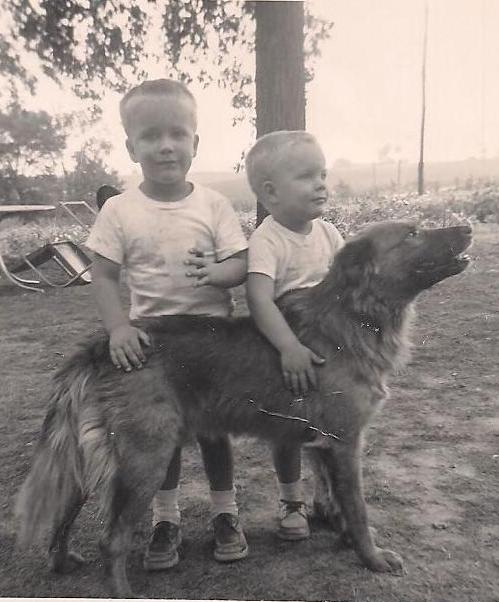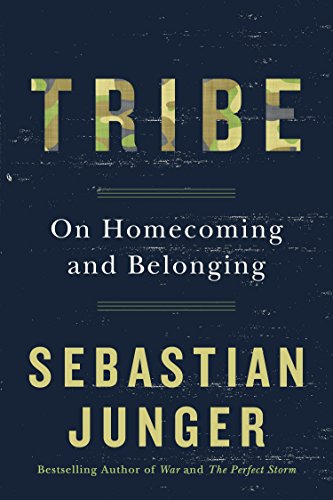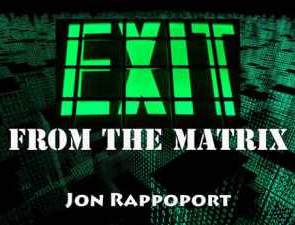6. And what have they done with my brother!?
Brian R. Wright
 Note: These columns are a series, I will make into a volume of my memoirs. You may follow the links at top and bottom of page to go to preceding or succeeding episodes. The series starts here. {If the [Link to Episode <next>] at the bottom of the column does not show an active hyperlink, then the <next> column has yet to be written.}
Note: These columns are a series, I will make into a volume of my memoirs. You may follow the links at top and bottom of page to go to preceding or succeeding episodes. The series starts here. {If the [Link to Episode <next>] at the bottom of the column does not show an active hyperlink, then the <next> column has yet to be written.}
First, I’m going to hit you with yet another Bro and me image, mainly because the age is right, probably the summer before kindergarten, and we’re at my mother’s mother’s farm near Centerville, Iowa. With the Mighty Wonder Dog named Tuton— named by our step-grandfather’s sons after the conventional two-ton pickup truck of the time. [I promise, this will be the final cute childhood picture of my brother and me. Well, okay, at most one or two more. 🙂 ] You can see my brother, Forrest, on the right, simply adored that dog. Tuton was a great one, too, he would run after any vehicle that came rolling down the dirt road in front of the farm house, barking and carrying on something fierce. But was as gentle and friendly a pet as you can imagine. Grown manly men cried buckets when Tuton died.
I’m introducing this episode with another brother photo, because one of the most serious crimes of force against me as a child—almost as heartless as taking me away from my parents—was separating me from my brother. In Episode 4, I allude to that assault, in particular:
“… my parents see no real alternative but to enter me in the compulsory government school system, the entry point euphemistically called kindergarten—literally, ‘children’s garden.’
“… ‘Who are these strange people wanting to tell me what to know, what to do, ringing bells, enforcing naps, tying my behavior to a group, regulating my movement into strict confines, watching me all the time, taking me away from my brother (confining me by age), putting this so-called ‘teacher’ adult in front who tells me to raise my hand and stay in my seat, and so on?!
“Who died and made them king? Was I asleep when they came by to ask for my approval? Where’s my brother? ‘If you don’t mind, Mrs. Bland, I’m going to be on my way, I know where the door is, thank you. I can walk home from there. My parents will call your parents. Have a nice day.’ Whhhooooshhh! out the door…. No such luck.” Continue reading


